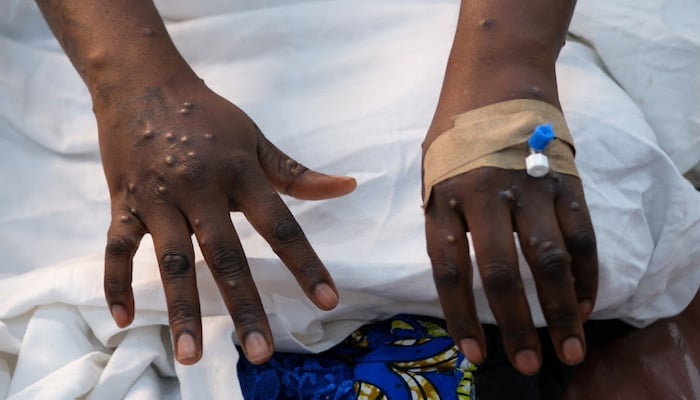Mpox, formerly known as monkeypox, is a viral zoonotic disease that primarily occurs in tropical rainforest areas of Central and West Africa and is occasionally exported to other regions. The disease is characterized by a distinct rash that evolves through several stages, including macules, papules, vesicles, pustules, and scabs. Other symptoms can include fever, headache, muscle aches, backache, swollen lymph nodes, chills, and exhaustion. Transmission occurs through close contact with an infected person or animal, or with contaminated materials like bedding. The virus typically enters the body through broken skin, the respiratory tract, or the mucous membranes (eyes, nose, or mouth).
In Ghana, as of June 22, 2025, health authorities have confirmed a total of 119 cases of Mpox. The recent addition of two new cases underscores the continuing presence of the virus and the need for ongoing vigilance. Encouragingly, no new fatalities have been reported, maintaining the death toll at zero, and there are currently no hospitalized cases. This suggests that the current containment strategies employed by the Ghana Health Service (GHS) are proving effective in managing the outbreak and preventing severe outcomes.
The GHS has emphasized the importance of sustained public cooperation and adherence to preventive measures to avoid a resurgence of the virus. While the current situation appears contained, complacency could lead to an increase in transmission. The public health message is clear: early detection and reporting of symptoms are crucial. Individuals experiencing any Mpox-related symptoms, especially fever, swollen lymph nodes, or the characteristic rash, are strongly advised to seek immediate medical attention. Prompt diagnosis allows for appropriate medical care and helps to prevent further spread of the virus within the community.
The GHS is actively monitoring the outbreak’s progression and stands prepared to escalate its response efforts if necessary. This proactive approach involves continuous surveillance, contact tracing, and public health education campaigns to ensure rapid and effective action in case of a surge in cases. Maintaining this preparedness is essential for containing the outbreak and protecting public health. The strategy emphasizes the combined importance of individual responsibility and a robust public health infrastructure in managing and ultimately overcoming the outbreak.
One of the key messages from the GHS is the importance of continued vigilance even in the face of seemingly positive indicators. The absence of fatalities and hospitalizations is certainly encouraging, but it does not signal the end of the outbreak. The virus is still present within the community, and the potential for further transmission remains. Therefore, maintaining preventive measures, such as avoiding close contact with infected individuals and practicing good hygiene, is crucial. Public awareness campaigns are essential in reinforcing these practices and ensuring that the public remains informed and engaged in the collective effort to contain the spread.
The Ghanaian experience with Mpox highlights the crucial role of a proactive and responsive public health system. The GHS’s approach, characterized by continuous monitoring, rapid response, and public engagement, has been instrumental in containing the outbreak and minimizing its impact. However, the fight against Mpox, like any infectious disease, is a shared responsibility. Continued public cooperation, adherence to preventive measures, and prompt reporting of symptoms remain paramount in preventing a wider outbreak and ultimately eradicating the virus from the community. The current situation, while positive, should be viewed as a window of opportunity to strengthen public health infrastructure and reinforce community engagement to maintain control over the outbreak and prevent future resurgences.


